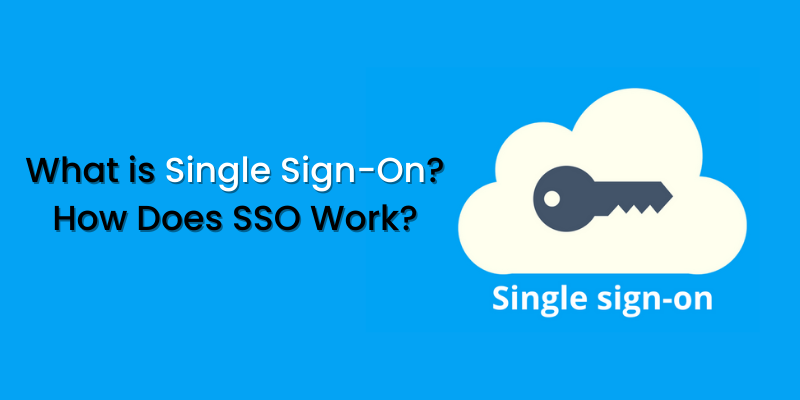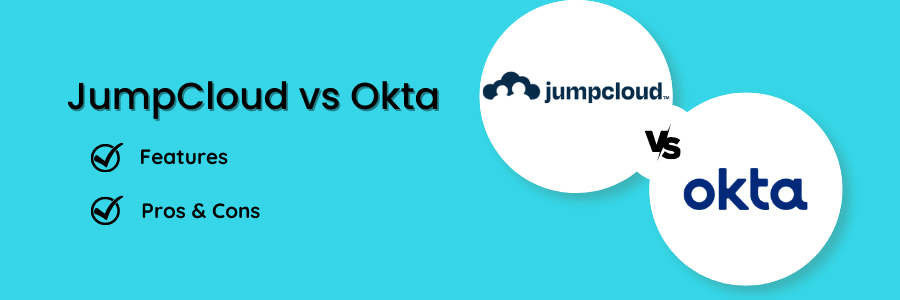What is Single Sign-On? How Does SSO Work?

What is Single Sign-On?
Single Sign-On is an authentication solution that allows users to safely authenticate with numerous applications and websites using a single set of credentials. To make managing a variety of usernames and passwords easier, SSO can be used by individuals, smaller businesses, and enterprises.
A user repository, such as a Lightweight Directory Access Protocol (LDAP) directory, is used to authenticate users in a basic online SSO service. An interface module on the application server receives the unique authentication credentials for a given user from a specialized SSO policy server.
The service authenticates the user for each application to which they have been granted access and removes subsequent password requests for each application throughout the same session.
How Does SSO work?
SSO operates on the basis of a trust relationship established between an application, known as the service provider, and an identity provider, such as F60Host.
A certificate that is exchanged between the identity provider and the service provider frequently serves as the foundation for this trust relationship.
In order for the service provider to know that the identity information is coming from a reliable source, this certificate can be used to sign identity information that is being transferred from the identity provider to the service provider.
In Single Sign-On, this identity data is represented by tokens that include identifying details about the person, such as their email address or username.
What is an SSO Token?
Types of SSO configurations
Several SSO services make use of protocols like Kerberos and Security Assertion Markup Language (SAML).
Kerberos
Once the user credentials are given in a Kerberos-based configuration, a ticket-granting ticket (TGT) is generated. Without requesting credentials again, the TGT retrieves service tickets for any additional apps the user desires to access.
SAML
SAML is a standard for extensible markup language (XML) that makes it easier to send user authentication and authorization information between secure domains. The user, an identity provider that manages a user directory, and a service provider all communicate as part of SAML-based SSO services.
What is an SSO Token?
SSO token is a collection of data or information that is transmitted between systems during the SSO procedure. The information might be as basic as the user’s email address and details about the system that is sending the token. For the token receiver to be able to confirm that the token is coming from a reliable source, tokens must be digitally signed. During the initial configuration process, the certificate that is used for this digital signature is transferred.
The Benefits and Drawbacks of SSO
| Less passwords and usernames need to be managed and remembered by users for each application. |
It does not handle specific security requirements that each application sign-on might have.
|
| There is no need to reenter passwords, which streamlines the process of logging on and using programmes. |
Users are locked out of the numerous systems connected to the SSO if availability is lost.
|
| It reduces the likelihood of phishing. |
Unauthorized users may have access to multiple applications if they succeed in getting in.
|
|
It results in fewer issues or complaints regarding passwords for IT help desks.
|
Know more about the Benefits of Single Sign-On in detail
The most renowned Single Sign-On providers
There are numerous well-known SSO vendors. Single Sign-On is an additional service that some companies offer. Some SSO providers are as follows:
- JumpCloud combines access control and device management, with SSO offered as a core feature of this cloud-based alternative to Microsoft Active Directory and Okta.
- Rippling allows users to sign in to cloud applications from numerous devices.
- Avatier Identity Anywhere is an Single Sign-On solution for Docker-based platforms.
- OneLogin is a cloud-based identity and access management (IAM) software that supports SSO.
- Okta is a tool with Single Sign-On capabilities. Okta is largely used by business users and also supports 2FA.



